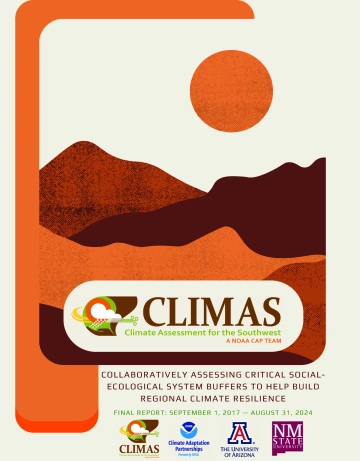Community-Based Responses to Climate Water Challenges
This project examines community perceptions and decisions about climate science, economics, and policies associated with resilience strategies that address increasing water scarcity in the Southwest. Strategies to be evaluated include: investments in built infrastructure (e.g., reservoirs and pipelines); incentive-based risk-sharing agreements; and watershed ecosystem services. The project emphasizes how ecosystem services can buffer water impacts of climate change, as well as the potential for climate mitigation as a strategy to enhance water supply security. Project outputs will include a replicable method for co-producing resilient water-related climate adaptation and mitigation strategies, including scientific and economic evaluation. Potential outcomes include improved water supply reliability and cooperation on adapting to shortages for a regional economy that exceeds $3 trillion annually.
Project Partners: School of Natural Resources and the Environment, U.S. Bureau of Reclamation, Arizona Department of Water Resources, U.S. Department of Agriculture, Central Arizona Project, Salt River Project, University of Nevada, Reno, University of Colorado, Sonoran Institute, The Nature Conservancy
Additional Funders: U.S. Dept. of the Interior – Southwest Climate Science Center, U.S. Department of Interior—Landscape Conservation Cooperatives


